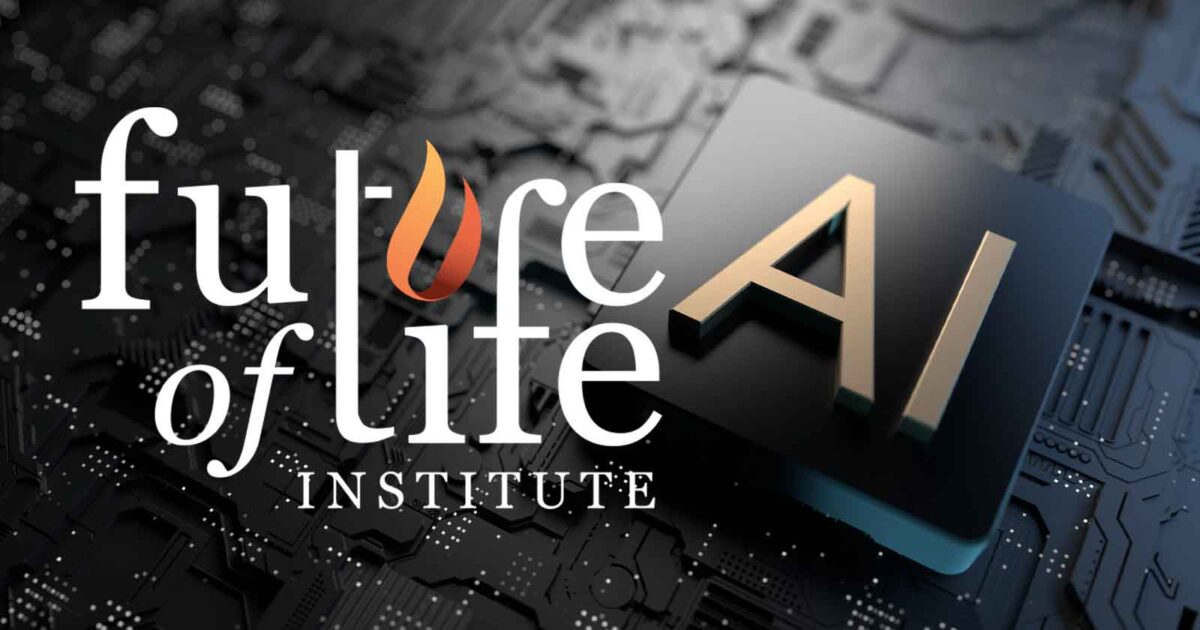
Backed by a substantial influx of funds from a cryptocurrency entrepreneur, the Future of Life Institute (FLI) is establishing a network aimed at urging governments to address the potential risks of artificial intelligence (AI).
A relatively young nonprofit organization advocating for stringent safety regulations concerning AI recently secured over half a billion dollars from a single cryptocurrency tycoon. This significant donation underscores the increasing financial influence of organizations focused on AI-related issues.
Despite having only about two dozen employees spread across the United States and Europe, the Future of Life Institute now possesses a considerable war chest, comparable to well-known nonprofit giants such as the Brookings Institution and the American Civil Liberties Union Foundation.
This financial boost positions Future of Life Institute to wield significant influence in the rapidly evolving global discourse on AI regulation. However, the specific intentions of the group and its planned utilization of these funds remain largely unknown.
FLI has allocated only a fraction of its cryptocurrency windfall thus far, primarily directing it towards grants for AI safety researchers and organizations advocating for strict regulations on AI development. Several of these recipient groups are actively involved in advising initiatives such as Washington’s new AI Safety Institute and London’s AI safety strategies.
Additionally, Future of Life Institute (FLI), through its newly established Future of Life Foundation, intends to launch “three to five new organizations annually” dedicated to guiding AI and other transformative technologies towards benefiting humanity while mitigating large-scale risks.
FLI’s advocacy aligns it with one side of a contentious debate surrounding AI regulation. Critics argue that the long-term existential risks posed by AI, which FLI emphasizes, may overshadow more immediate concerns such as discrimination and job displacement. Furthermore, there are concerns that amplifying fears about AI among policymakers could serve the interests of tech billionaires who fund such initiatives.
Melanie Mitchell, an AI researcher at the Santa Fe Institute, expresses apprehension regarding the influence these organizations may exert on regulation, particularly among policymakers with limited understanding of AI technologies.
The emergence of AI has propelled several nascent nonprofit organizations into prominence, as they advocate for their respective visions of AI safety regulations on the global stage. FLI, which previously operated on a smaller scale, experienced a dramatic transformation when it received a substantial donation in cryptocurrency from Vitalik Buterin, a prominent figure in the cryptocurrency world.
This influx of funds significantly surpasses those accumulated by most other AI-focused organizations, catapulting FLI into the spotlight. Notably, Future of Life Institute gained recognition for a widely circulated letter endorsed by prominent figures in the tech industry, calling for a “pause” in advanced AI research, sparking discussions on AI’s potential risks in various governmental arenas.
FLI’s advocacy efforts include calls for government intervention, such as licensing requirements for AI development and other safety regulations, which it continues to promote on both sides of the Atlantic.
However, critics caution against the potential consequences of implementing such regulations, suggesting they may inadvertently favor established AI firms over smaller startups. They argue that stringent regulations could stifle innovation and perpetuate the dominance of industry giants.
Future of Life Institute refutes claims that its advocacy aligns with the interests of leading tech companies, asserting that its efforts aim to promote common-sense regulations for the benefit of society. Additionally, FLI highlights its broader philanthropic initiatives beyond AI, addressing concerns such as nuclear war and biodiversity loss.
Despite its relatively small size, Future of Life Institute (FLI) has garnered significant attention for its role in shaping global AI regulations. Its president, Max Tegmark, has testified before the U.S. Senate on AI issues, while its board member, Jaan Tallinn, has been appointed to influential positions, including the United Nations AI Advisory Body.
FLI’s recent receipt of a substantial cryptocurrency donation has positioned it uniquely among AI safety advocacy groups. While the organization’s exact plans for utilizing these funds remain undisclosed, it has signaled intentions to expand its lobbying efforts in Washington.
Nevertheless, as a nonprofit organization, FLI’s lobbying activities are subject to financial limitations. It remains to be seen how FLI will navigate its newfound financial resources while continuing to advocate for AI safety and regulation on the global stage.
FLI’s disclosure of Buterin’s donation, made through a little-noticed EU transparency filing in 2023, revealed the substantial value of the contribution, which amounted to $665.8 million. Despite this windfall, much of the funds remain unspent.
Future of Life Institute has transferred the “vast majority” to a donor-advised fund and other nonprofit entities primarily engaged in asset management services. This arrangement, according to FLI spokesperson Ben Cumming, is a standard practice for nonprofits managing significant resources.
Vitalik Buterin, the creator of Ethereum, has expressed concerns about the potential risks associated with AI, highlighting the need for precautions to prevent it from posing existential threats to humanity. While Buterin did not respond to requests for comment on his donation to FLI, his blog posts underscore his apprehensions regarding the unchecked advancement of AI technology.
Future of Life Institute may allocate a portion of Buterin’s endowment towards expanding its lobbying efforts in Washington. In the past year, the organization spent $180,000 on lobbying Congress on AI safety issues.
Jaan Tallinn, a board member of Future of Life Institute (FLI), who has invested in leading AI labs and shares concerns about AI safety, indicated a shift towards prioritizing regulatory interventions and educating lawmakers. Tallinn’s remarks suggest a strategic focus on enhancing lobbying efforts to promote AI safety regulations.
However, FLI’s lobbying expenditure is capped at $1 million per year as per its nonprofit status. While FLI refrains from commenting directly on Tallinn’s statements, it is evident that the organization is contemplating ways to utilize its newfound financial resources to bolster its advocacy efforts.
The Future of Life Institute’s recent infusion of funds has elevated its status within the AI safety advocacy landscape, setting it apart from other organizations in the field. As FLI continues to navigate its role in shaping AI regulations, its strategic deployment of resources will play a crucial role in influencing policymakers and shaping the trajectory of AI development towards safer outcomes for society.



